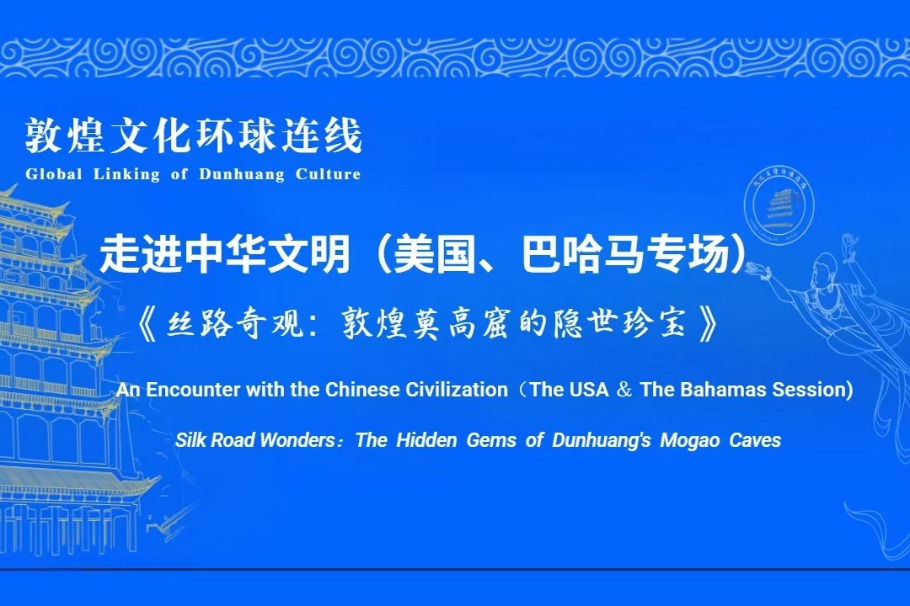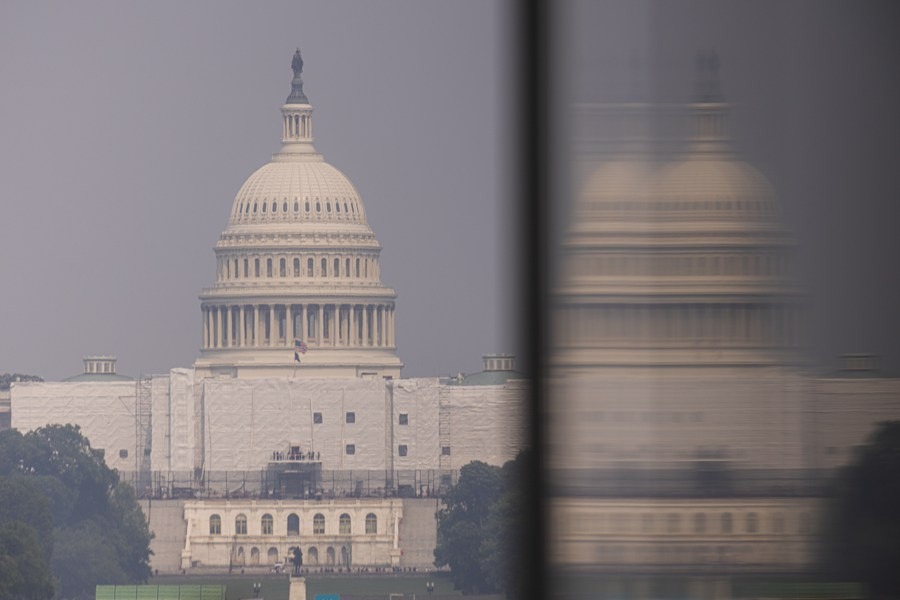Rule of law protects IPR and fuels innovation


As China celebrates the 70th anniversary of the people's congress system, the country's transformation from an agrarian economy to a global innovation and manufacturing powerhouse, and the eradication of extreme poverty should be seen as landmark achievements.
The strengthening of the rule of law — especially in the realm of intellectual property rights (IPR) — has played a key role in the country's remarkable transformation. IPR protection is more than a legal formality; it is crucial for promoting innovation, facilitating economic growth and increasing global competitiveness.
Protecting IPR paves the way for a vibrant culture of innovation as China pursues innovation-driven development. The government has played a crucial role in raising IPR awareness through education and public campaigns. Initiatives such as the annual "National IP Publicity Week" are aimed at educating the public, enterprises, and government officials on the importance of IPR protection.
To promote innovation, a country has to increase people's awareness of IPR protection and establish a robust legal framework that can meet society's changing needs. In China, key IPR laws — such as the Patent Law, Trademark Law and Copyright Law — have undergone multiple revisions to provide better IPR protection, streamline procedures, and increase penalties for IPR infringements. These changes provide stronger incentives for innovation and demonstrate China's commitment to create a fair and predictable legal environment for businesses.
China has also introduced new laws to address emerging IPR realms, such as the protection of trade secrets and the regulation of e-commerce platforms. The Anti-Unfair Competition Law, for example, has been revised, providing clearer guidelines for the protection of trade secrets, reflecting the growing importance of intangible assets in the digital economy. These advancements in lawmaking are complemented by China's participation in international IPR treaties like the Paris Convention and the Patent Cooperation Treaty. By strengthening its legal framework, China has facilitated cross-border innovation and aligned its IPR protection legislation with international IPR laws.
A robust IPR legal framework must be supported by effective dispute resolution mechanisms. In China, the establishment specialized courts to deal with IPR cases and promotion of alternative dispute resolution methods — including the China International Economic and Trade Arbitration Commission and other arbitration institutions with specialized panels for IPR-related disputes — have significantly improved the legal handling of IPR disputes.
To protect IPR, a country requires vigorous enforcement across administrative, civil and criminal channels. The State Administration for Market Regulation and other departments have expedited efforts to combat counterfeiting and piracy, particularly in key sectors such as pharmaceuticals, electronics and luxury goods. Civil enforcement has also improved, with Chinese courts increasingly willing to award substantial damages in IPR infringement cases.
The introduction of punitive damages in IPR litigation is a notable development, as it compensates rights holders and deters infringements by increasing the financial penalty for violators. Although less highlighted, criminal enforcement has also gained traction, demonstrating China's commitment to better protect IPR.
Besides, promoting innovation through IPR protection requires not only domestic efforts but also international cooperation. China's drive to strengthen its IPR regime is closely linked to its efforts to integrate the Chinese economy with the global economy. As China has become a major player in international trade, the pressing need to improve IPR protection has catalyzed reforms, prompting China to adopt international standards and practices. Aligning China's IPR protection system with global norms allows Chinese innovators to seek protection for their innovations abroad while encouraging more foreign businesses to collaborate with their Chinese counterparts.
China's accession to the World Trade Organization in 2001 was a milestone in integrating the Chinese economy with the global economy and boosting foreign trade. As part of its WTO commitments, China implemented extensive reforms to align its IPR laws with the Agreement on Trade-Related Aspects of Intellectual Property Rights. This alignment facilitated China's entry into the global market and provided a framework for continuous improvement in its IPR protection.
With the Chinese economy integrating with the global economy, domestic enterprises have had to comply with international standards, highlighting the significance of respecting IPR at home. The increasing number of Chinese patent applications filed domestically and internationally every year attests to this growing awareness.
However, protecting IPR is a lot more than implementing robust legal measures; it also involves the establishment of dynamic mechanisms that ensure China's IPR system adapts to economic, legal and social changes. While legal protection and international integration are critical, the role of the market in promoting innovation cannot be overlooked. A well-functioning market rewards innovation, prompting companies to develop new products and technologies to stay competitive in the market.
In China, the rise of a vibrant private sector has boosted innovation, with IPR rights playing a central role in the process. The rapid growth of Chinese high-tech giants such as Huawei, Tencent and Alibaba illustrates how strong IPR protection can fuel innovation. And the emergence of innovative start-ups in biotechnology, artificial intelligence and renewable energy highlights the importance of a competitive market in fostering innovation. These start-ups' ability to protect IPR is crucial for attracting investments.
The government's emphasis on building a "socialist market economy" with Chinese characteristics also underscores the importance of competition in driving innovation. By promoting market-oriented reforms and supporting private enterprises' growth, the government has created an environment where businesses are incentivized to innovate and compete globally. This competition, in turn, drives technological advancement and economic growth.
On the 70th anniversary of the people's congress system, China can reflect on the significant strides it has made in promoting innovation through better IPR protection. The rule of law, particularly in the realm of IPR, has been a cornerstone of China's efforts to become a global leader in innovation. By creating a legal environment where IPR is better protected, China has laid the foundation for sustained economic development and technological advancement. Moreover, greater efforts should be made to further strengthen and better protect IPR, in order to maintain China's competitive edge and foster a culture of innovation which benefits not only China but also the rest of the world.
The author is an associate professor at the School of Law, Durham University.
The views don't necessarily reflect those of China Daily.
If you have a specific expertise, or would like to share your thought about our stories, then send us your writings at [email protected], and [email protected].
































